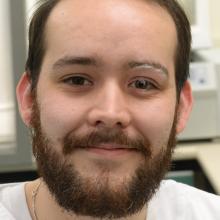Tuberculosis is the world's biggest infectious disease killer, causing about 1.7 million deaths each year, and drug-resistant Tb cases are rising.
Prof Cook, of the University of Otago microbiology and immunology department, said researchers had discovered a novel property of a new anti-tuberculosis drug, Bedaquiline, which could also help develop more drugs to treat tuberculosis.
"Our lab is actively searching for new Tb drugs to complement Bedaquiline and expand the treatment options available to clinicians world-wide," he said.
Prof Cook and postdoctoral fellow Dr Kiel Hards have been investigating the drug.

The drug, inhibits the synthesis of ATP, a high energy molecule, which powers the cells of M. tuberculosis, the bacterial pathogen which causes tuberculosis.
Dr Hards said the new drug's most promising features were its ability to shorten the treatment timeframe, in some drug-resistant cases, from about
two years to only eight weeks, and that its target was "unconventional for an antimicrobial".
Apart from disrupting energy production, the drug also affected the movement of ions across the bacterial membrane, "resulting in the dissipating of critical ion gradients needed for growth and survival", Dr Hards said.
Prof Cook said this latter finding by Otago researchers could help explain the mystery of how the drug could also kill non-replicating M. tuberculosis cells.
The finding could also have ramifications for other antibiotics, as many other antibiotics could also work by this mechanism.
The "biological electricity" these ions normally created "held the key to energy generation and a whole series of other incredibly important cellular processes", he said.
The Otago-led research was recently published in the international journal Proceedings of the National Academy of Sciences of the United States of America.












